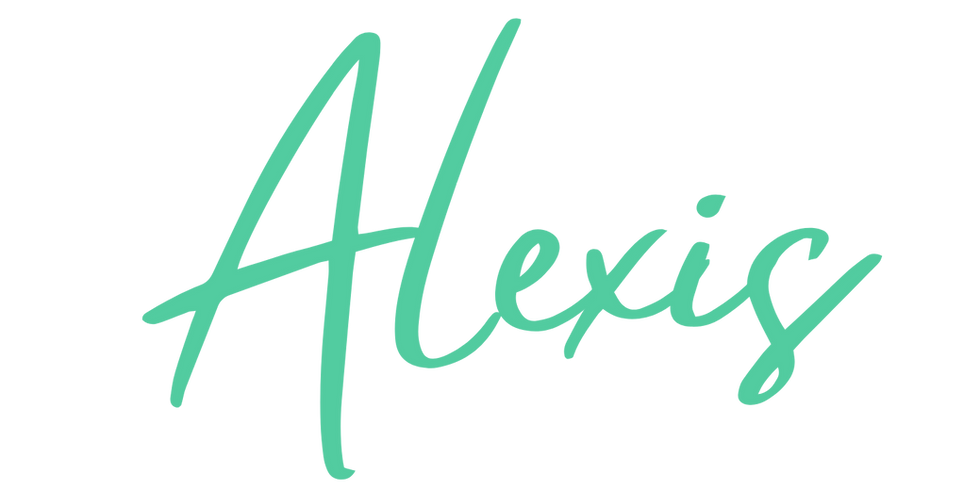Physical health: wellness and balance
- Alexis Booth
- Jun 3, 2025
- 6 min read
Updated: Dec 14, 2025
Take care of your body. It's the only place you have to live. – Jim Rohn
Today's newsletter offers up some highlights and personal reflections on Episode 6. In it, Nina Black, an expert in physical fitness, joins me to dive into a more holistic aspect of your life: your physical health. Our discussion reflects the idea that physical health isn’t a standardized goal, but rather a deeply personal journey that shifts across different phases of life.
I explore 3 topics from the episode below - but there’s plenty more to hear. I hope you’ll check it out. 🔊 Listen in: Apple Podcasts | Spotify | Website

👉 What is physical health?
I love Nina’s simple yet profound statement from our conversation:
“Physical health is your ability to live your longest and most vibrant life.”
In the episode, we discuss six main elements that are crucial to managing your physical health.
1. 🏃🏽♀️
Physical fitness
Being physically fit is about being able to use your body without strain and maintaining a good energy level. For most of us, it's not about running marathons, but being able to walk up the stairs without being winded or tie your shoes without throwing out your back. I personally love high intensity workouts, and there are plenty of other ways to stay physically fit, be it walking, biking, yoga, or playing a social sport like soccer or pickleball.
2. 😴
Sleep
Sleep is key to your physical health. Sadly, many lifestyle choices and work / school norms promote late nights and “all nighters” - and can get in the way of healthy sleep habits and getting rest. I didn’t truly prioritize sleep until I became a mother, and it involved making significant changes to not only daily routines, but my mindset about sleep. PS - my FitBit and Oura ring have been game changers here.
3. 🥦
Nutrition
Your diet and nutrition provide your body the nutrients, vitamins, and minerals it needs to function optimally. Of course, food choice and eating habits are complex topics with cultural norms, and nutrition is closely tied to managing weight and the way you look. In the episode, Nina and I talk at length about our complicated relationships with food and body image, which also had a negative effect on our mental health for years.
4. 😡
Stress management
Stress is a natural human reaction to difficult situations that impacts both your mental and physical health. We often think about stress as being a mental problem - it can lead to anxiety, irritability, and trouble concentrating - but it also has physical effects like high blood pressure, muscle tension, sweating, and hormonal imbalances. Reducing ongoing stress can have a profound effect on your physical health.
5. 💪
Physical body function
When I talk about body functioning, I'm talking about the ability for your body and all of your body parts to perform as they should. This encompasses everything from bone and joint health to how your organs function and your ability to recover from injury. Modern medicine has improved this element for many, through procedures like hip and knee replacements that can help recover body functioning.
6. 😷
Managing disease
The ability to prevent, detect, and control disease is key to living a long and vibrant life. This element covers a broad range of conditions, from common infections like the flu and pneumonia, to chronic diseases such as diabetes, heart disease, and cancer. Managing disease is also an increasingly common challenge as we age, as immune functioning changes over time.
None of these elements exists in a vacuum - and changes in one can cause a domino effect across the others. If you break your leg, for example (a body function issue), it will likely cause frustration and stress, and you’ll have a harder time staying physically fit. You may not be able to sleep well due to pain or decreased mobility in bed, the injury could lead you to make “less healthy” eating options for a variety of reasons, and you might even develop an infection related to your injury.
On the flip side, when I'm more physically active I notice I sleep better, my stress goes down, and I have fewer cravings for "unhealthy" foods. Staying fit also strengthens my bones and improves my immunity.
The dominos can go in either direction.
While breaking physical health down into so many aspects might feel a bit daunting, I found it helped me think about an aspect of my life that seemed out of reach and unattainable as a whole, in terms of smaller, more approachable elements. I could then choose the things that help me feel my best, and focus on those. For me, sleep is my most critical need, followed by staying physically fit. What I've found when I focus on those two aspects, the other aspects tend to improve without much additional effort - which makes me feel good AND it helps keep me on track.

👉 “One Size Fits One”
This is a quote from Nina, who shared this profound idea in our conversation.
Her comment really struck a chord with me. Why? It’s deep - it can be applied to two totally different dimensions of how you might think about your own physical health.
Your body and your needs are unique. Your body’s specific needs are different from everyone else’s - even someone who has a similar “look” or build as you. Comparing yourself to others can make it harder for you to change your habits - the adage “comparison is the thief of joy” comes to mind. Worse yet, the sad truth is that when I catch myself making comparisons to other people, they aren’t useful, and when I pause to really think about them - most of the time they're not even accurate.
To be clear, I’m not suggesting you stop taking advice from someone who inspires you in your pursuit of physical health (or any goal, for that matter). But I do recommend you take the inspiration for what it is: encouragement to help you do something that is hard, or to try something new. Try not to let yourself get caught up in the vicious cycle of comparison.
Your current self is different from your past self. Your body and what it needs is different when you are 10, 20, 40, and really, any age. Many of us could “get away” with less optimal choices when we were younger - less sleep, less intentional nutritional choices, more intense fitness goals - but eventually most of us begin to notice how with time, maintaining those same old habits can result in sluggishness, injury and even disease.
Whether you’ve noticed shifts in your health gradually, or had a particular moment of “reckoning,” it’s pretty much guaranteed that as a human being, your body’s needs will continue to change over the course of your life. Try your best to focus on what you need today, and nourish the current version of you.
Ultimately, Nina’s statement is an invitation to embrace the body you are in today, and focus on how to both challenge and nurture yourself in the ways that work for you, for now. It’s an empowering way to focus on yourself, in the present.
👉 How to promote your physical health

Ultimately, I believe the most empowering way for you to think about physical health is to focus on doing more of the things that make you feel good.
Both Nina and I shared that in pursuing our physical health, we had to let go of a lot of things to make room for more useful and powerful ideas.
Three key things we now focus on instead:
🔥 Prioritize what gives you energy.
The goals I have for my physical health have shifted over time, especially the past 10 years. Nowadays, I make choices that help me feel energized - rather than trying to look good. The choice has led to tradeoffs in certain areas, but by focusing on the things that give me energy, it creates a positive “domino effect” with the other aspects of my physical health - even without focusing on them directly.
❤️🩹 Make time for rest & recovery.
Sleep is already covered in my definition of physical health. But making time for “rest” days between intense workouts is also incredibly important. Nina describes that when she was younger, her goal was “to be broken by the end of the day.” These days, she prioritizes recovery. It’s a more sustainable approach, and you can actually level up your game even more if you’re not pushing yourself to your limit every single day.
🧘 Acceptance is key.
Throughout the episode, Nina and I both reflected that acceptance has been a critical part of our journeys toward physical health - accepting the bodies we have, what they need, and the ways they've changed with time.
Acceptance ultimately paves the way for a positive mindset, and makes it more likely you can succeed in making hard but worthwhile changes.
👉 Some final thoughts
Physical health is an intensely personal and ongoing journey. It’s not about achieving a fixed ideal, but rather listening to your body, prioritizing the things that make you feel good, and accepting that some days (or phases of life) will look different than others.
I hope this episode helps you discover new ways to think about your own physical health and well-being. In it, you’ll find validation, perspective, and practical ideas for developing a more compassionate relationship with your physical self.
You've got this.
💥 Break Out!

🔊 Listen to the full episode: Apple Podcasts | Spotify | Website




Comments